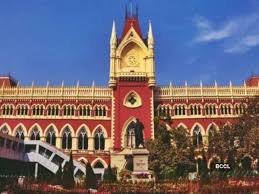The Kolkata High Court has ordered a stay on the West Bengal government’s ‘Amar Para Amar Samadhan’ initiative. Explore the reasons, implications, and what this landmark decision means for the future of local civic problem-solving in Bengal.
Kolkata, 26 August 2025
In a significant development with far-reaching implications for West Bengal’s local governance, the Kolkata High Court has issued an order to halt the ‘Amar Para Amar Samadhan’ scheme—a flagship initiative of the state government designed to address civic issues at the neighborhood level.
What Is ‘Amar Para Amar Samadhan’?
Launched as a people-centric platform, ‘Amar Para Amar Samadhan’ (translating to ‘My Locality, My Solution’) aimed to empower citizens to report and resolve local infrastructure and civic issues—from potholes and water supply to public safety. The scheme leveraged digital tools, local committees, and government coordination to streamline grievance redressal.
Why Did the Court Step In?
According to official sources, a series of public interest litigations (PILs) were filed, questioning both the legal standing and operational transparency of the scheme. The petitioners alleged procedural lapses, bypassing of statutory bodies like municipalities, and potential for misuse of discretionary powers.
After hearing both sides, the Kolkata High Court on Tuesday ordered an immediate stay on all ongoing activities under the program, pending a comprehensive review of its constitutionality and adherence to local governance statutes.
Implications for Citizens and Local Bodies
- Civic Grievance Redressal on Hold: Thousands of pending cases and ongoing projects under ‘Amar Para Amar Samadhan’ will now face uncertainty. For residents who relied on the platform for quick resolutions, this decision could mean delays and a return to traditional bureaucratic processes.
- Future of Digital Governance: The court’s intervention highlights the critical need for robust legal frameworks around tech-enabled governance. This is a turning point for all future e-governance initiatives in Bengal, with a strong emphasis on transparency, public accountability, and legal compliance.
- Political and Administrative Repercussions: The government may have to revisit and redesign the scheme, ensuring it aligns with constitutional mandates and local government protocols.
Expert View: A Wake-Up Call for Urban Innovation
Legal and urban policy experts see this as a “necessary pause” that could lead to more sustainable, legally sound civic innovation.
“Technology must support, not supplant, established governance frameworks. The High Court’s decision can drive a much-needed dialogue on participatory, yet accountable, local administration,” said a senior urban policy analyst.
What’s Next?
The state government is expected to submit a revised action plan to the court, detailing how future versions of the scheme will address legal and structural concerns. Meanwhile, citizens and local bodies await clarity on alternative mechanisms for civic redressal.
Forward-Looking Analysis
The episode marks a critical juncture in the evolution of local self-governance in India. As states across the country look to digitize and democratize civic services, the Kolkata High Court’s intervention underscores the importance of legal compliance, public participation, and data protection. The outcome of this case will set a precedent for similar projects nationwide, influencing the next generation of smart city and e-governance programs.

